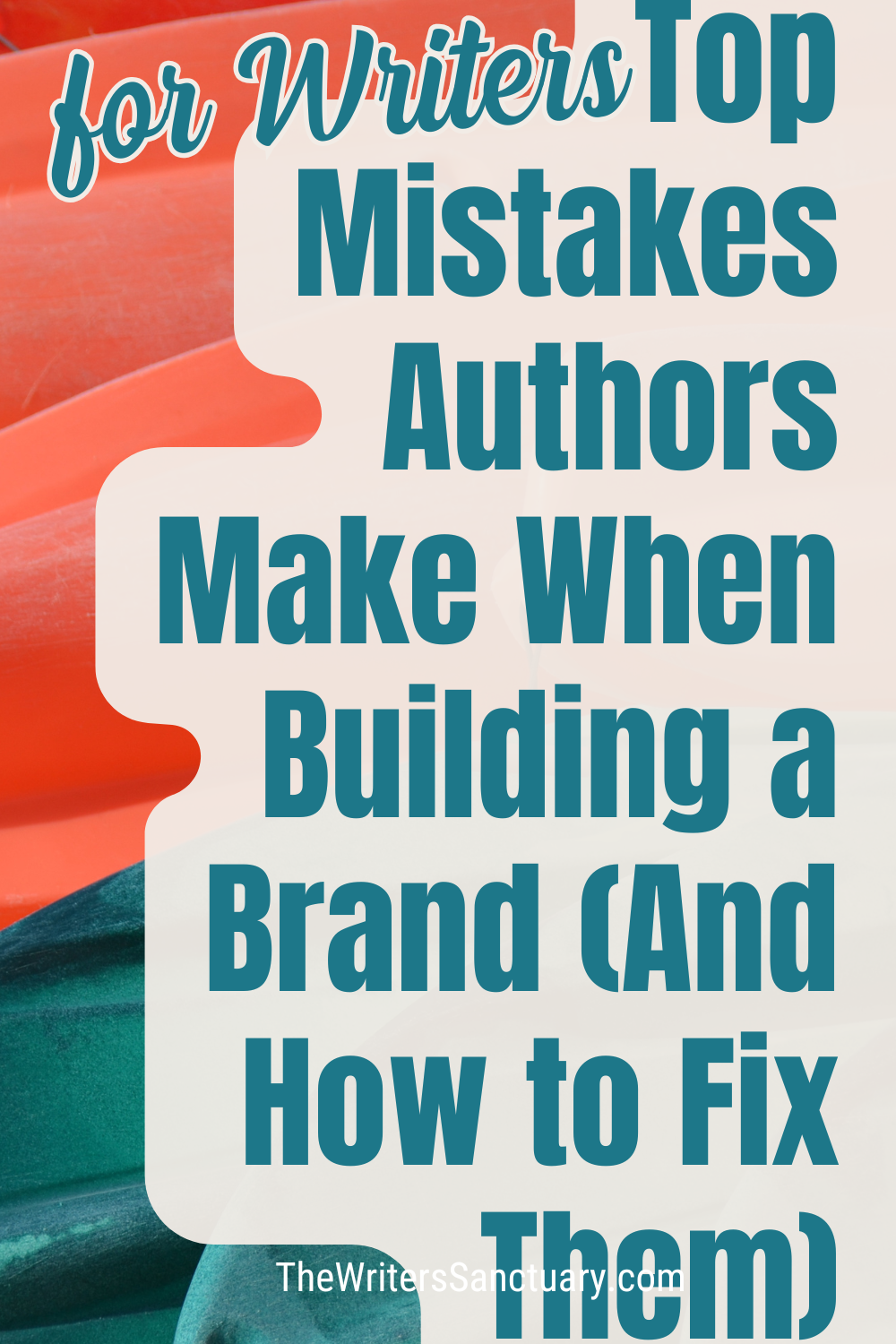Top Mistakes Authors Make When Building a Brand (And How to Fix Them)
“Author brand” can sound polished and intimidating, almost like it’s only meant for big companies or social media influencers. But your brand isn’t about selling out or stuffing yourself into a box. It’s simply how readers come to know, recognize, and trust you. It’s the feeling they get when they pick up your book, read one of your posts, or visit your website.
The problem? A lot of writers dive into building a brand without a clear plan—or steer clear of it entirely because it feels forced or insincere. Both approaches can lead to habits that actually push readers away instead of drawing them in. Here’s a breakdown of the biggest mistakes authors make and how you can avoid them.
Mistake #1: Being All Over the Place
A lot of writers try to appeal to everyone, so they post a hodgepodge of basically everything that comes to mind—random reels, bookish stuff, political rants, hobbies, passing thoughts, frustrations, jokes … you name it, they post it. It’s a scattered approach that makes it tough for readers to get a clear sense of who you are as an author.
How to fix it:
Pick a handful of themes tied to what you write and care about most. If your books blend dark fairytales and raw emotional journeys, your online presence might mix gothic aesthetics, honest mental health reflections, and behind-the-scenes story teasers. Keep it focused enough that readers know what they’re getting—while still feeling like the real you.
Mistake #2: Copying Someone Else’s Style
It’s tempting to look at a big author or book influencer and try to mimic their tone, content, or look. The thing is, readers pick up on anything that feels fake. If your brand comes across like you’re trying to play a part that doesn’t fit, it won’t connect with them—or keep their interest.
How to fix it:
Take inspiration, sure—but filter it through your own voice. What topics light you up? What kind of themes naturally show up in your writing? Build your brand around that. Readers are drawn to authenticity way more than perfection.
Mistake #3: Only Talking About Your Books
It’s easy to think “author brand” means constantly reminding people that you have a book for sale. But constant self-promo gets old fast. It can come off like shouting “buy my book!” into a void.
How to fix it:
Share content that creates community or gives value outside of your sales links. Share the tropes you love to write, the stories that always bring you joy, or the ideas that keep you inspired. It’s all about creating trust and connection, so by the time your next book comes out, readers already feel invested in you and your work.
Mistake #4: Waiting Until Your Book is Done to Start
A lot of writers think they’ll figure out branding once the manuscript is finished or when it’s time to launch. But then it feels like scrambling from zero, and they miss out on months (or years) of building warm, loyal readers.
How to fix it:
Start showing up early. Share your drafting challenges, give a peek at your behind-the-scenes process, or invite readers to help you choose swag items. Let them come along for the ride. That way, when your book finally launches, your audience will be excited and ready to cheer you on.
Mistake #5: Ignoring the Emotional Core
Branding isn’t just colors, fonts, or witty bios. It’s how people feel after they interact with your posts, your stories, your emails. That’s what makes them stick around.
How to fix it:
Think about the deeper promise of your brand. Do you want readers to feel hopeful? Thrilled? Seen and understood? Lean into that consistently—whether you’re sharing a meme, a heartfelt caption, or an excerpt from your book.
Ready to build an author brand that feels true to you and gets your books into the right hands?
The Iconic mentorship program is here to help serious writers develop stories, strategies, and platforms that stand out—without losing your voice in the process. You’ll get personal coaching and guidance to developing your brand and launching a successful career!


